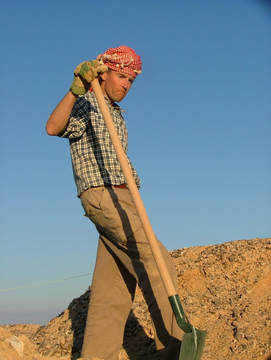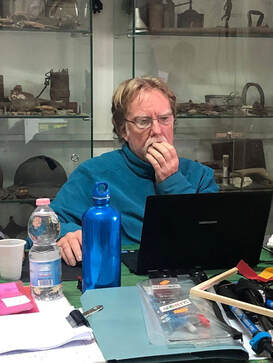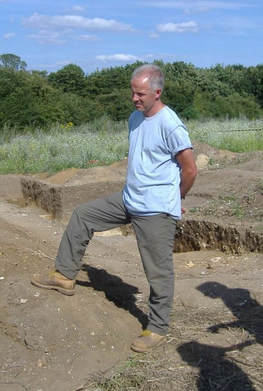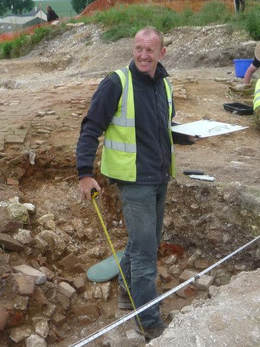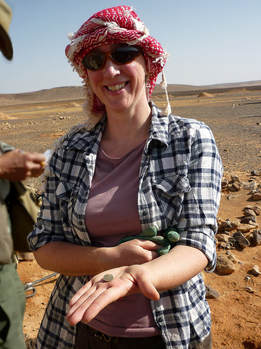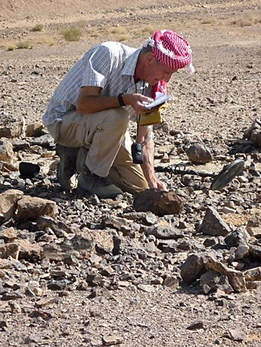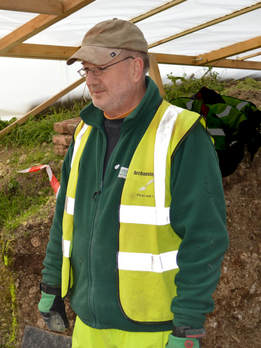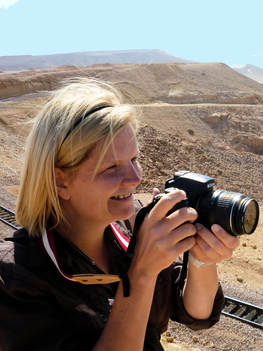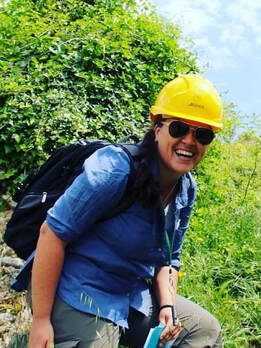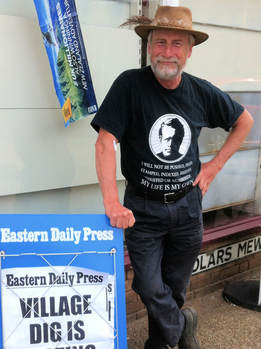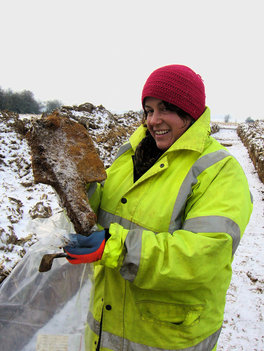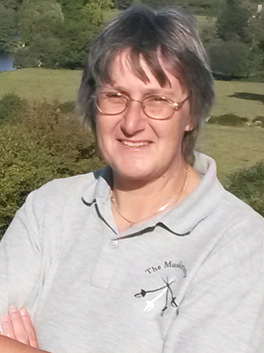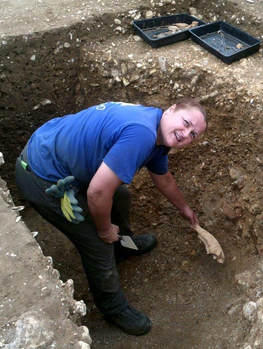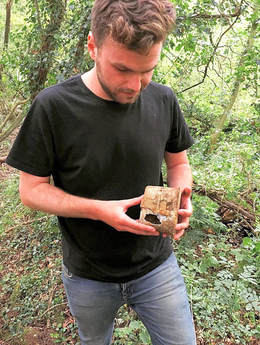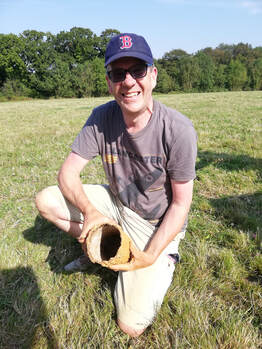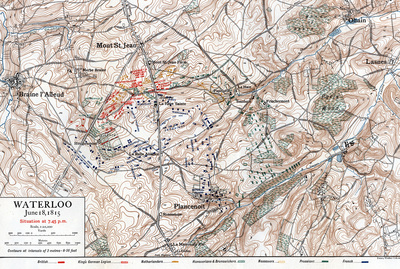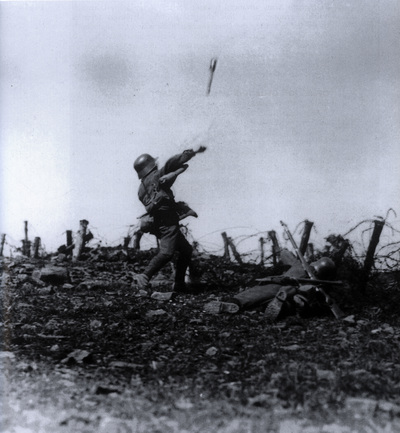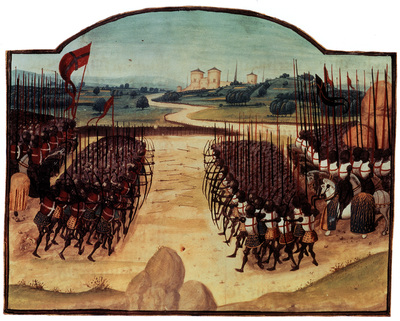Team |
MILITARY HISTORY LIVE is a specialist field unit devoted to conflict archaeology. Our team includes military historians, landscape archaeologists, geophysicists, excavators, metal-detectorists, finds specialists, photographers, and computer technicians. Our repertoire of techniques has been developed over more than a decade of field experience. Our aim is both to carry out cutting-edge research and to make field archaeology accessible to all. Our team at present includes:
|
It is with great sadness that I have to announce that Neil tragically died after a short illness earlier this year. It is a struggle to describe the loss of Neil to our projects and to the wider world of archaeology. I am sure that everyone who has worked with Neil and counted him as a friend owes a debt to his knowledge, support, and generosity of spirit. Although this is often said, in this case it is really difficult to imaging continuing without him, as his loss is so deeply felt by his friends and colleagues.
We will continue our projects, in memory of our dear, lovely, inspirational friend, Neil Faulkner.
We will continue our projects, in memory of our dear, lovely, inspirational friend, Neil Faulkner.
Directors |
Dr Neil Faulkner, FSA
Neil was a leading conflict archaeologist, military historian, and political theorist. He worked as a writer, editor, lecturer, excavator, and occasional broadcaster. He was Editor of Military History Monthly and Co-Director of several archaeological field projects at home and abroad. His dozen books include Rome: empire of the eagles, Lawrence of Arabia’s War, A People’s History of the Russian Revolution, and The First Modern Jihad, 1870-1920. His TV appearances included Channel 4’s Time Team, BBC2’s Timewatch, and Sky Atlantic’s The British. Roger Ward, CPhys, MInstP Roger is a former academic scientist with specific expertise in IT and other related technologies. He is a multi-skilled expert specialising in conflict archaeology, and the use of digital technologies for data acquisition in the mapping of landscapes and the recording and analysis of data. He played a leading role in the Great Arab Revolt Project in Jordan (2006-2014) - for which, amongst many other things, he maintained the site blog - and he has also worked on British WWI and WWII sites. Roger is working on new methods of fast on-site recording and cloud data archiving and retrieval. |
Core Team |
Gary Rossin
Gary is Project Director of the Sedgeford Historical and Archaeological Research Project, where he has been researching and recording a First World War aerodrome. His earlier career encompassed consumer magazine publishing and logistics management. Gary’s forthcoming monograph on the archaeology and history of Sedgeford Aerodrome will be published late 2017. He is also currently researching the militarised landscape of north-west Norfolk during WWI and WWII. Cameron Ross
Born in Sydney, Australia, Cameron spent many years in the rainforest of NSW studying oil painting and working in a travelling bush circus. He then gained a degree in archaeology and palaeoanthropology, sailing tall ships to pay for his tuition, and afterwards worked for the Australian Museum, specialising in Aboriginal sites. Cameron studied archaeology at UCL, and also gained maritime archaeology and advanced diving qualifications. He has worked as a freelance archaeologist on sites in Britain, Italy, and Egypt, and, for many years, as a commercial archaeologist with UCL’s Archaeology South-East. He was a lead archaeologist at La Boiselle on the Somme in 2013, and is currently director of archaeology at the Hooge Crater WWI project in Belgium and the Operation Cobra WWII project in Normandy. Anna Gow
After working on both Roman and modern conflict sites, Anna has, with little formal training, become a key team member on several field projects, training others in the recording and photographing of artefacts. During the Great Arab Revolt Project, she catalogued and analysed thousands of artefacts collected in the deserts of southern Jordan, using GPS data to interpret the significance of the spreads. She was also involved in the recording of a First World War aerodrome at Sedgeford in Norfolk, and more recently, has worked as finds officer, project photographer, and surveyor at 'The Glory Hole' in La Boisselle, Picardy. David Long
After a career in the City of London, David discovered an interest in archaeology and subsequently in metal-detecting. In recent years he has excavated Roman and medieval sites and has used his experience in metal-detecting to good effect in a complementary role on these sites. His interest in modern conflict archaeology arose from involvement in the Great Arab Revolt Project in Jordan between 2006 and 2014, where he divided his time between excavating and detecting. Current projects include excavation of a Roman villa site in Dorset and an intensive geophysical survey around a medieval village. Brian M Powell
Following a 30-year career in aerospace and business, Brian, who has a degree in archaeology, became a freelance field archaeologist specialising in both 20th century military and Roman archaeology. As a Practitioner with the Chartered Institute of Archaeologists, Brian works mainly on projects within the UK, but has overseas experience in France (Somme), Belgium (Ypres), Italy (Oplontis/Pompeii), and Jordan (with GARP). Apart from undertaking excavations, Brian has 'ground-truthed' many of the world’s battlefields, in Europe (including Gallipoli), America (Civil War), Africa, and the Far East. Alison Baldry
Ali has worked in the field of forensics since 2001 as a forensic practitioner and crime scene photographer. She is a professional member of the Chartered Institute of Archaeologists and the Chartered Society of Forensic Sciences and has provided forensic archaeology expertise to UK police forces since 2007. Over the last 12 years she has been involved with numerous conflict archaeology projects, assisting with excavation, recording, and both site and artefact photography. Jessica Blackman
Born in Northern Queensland, Australia, Jess grew up on remote national parks and was educated over the radio. Jess left the bush to study archaeology and anthropology at university, although it was a close call- she nearly became a taxidermist. Jess was recruited out of university by a large mining company and she spent the next 6 years working and specialising in cultural heritage management, Aboriginal archaeology and GIS/Mapping software. She is now a consulting archaeologist with her own company and has worked across Australia. Jess is happiest when she is working in the field with others and her dream is to assist in bringing GPS skills and software to Indigenous communities to help them record and manage their own heritage. David Wood
David is a former RAF fighter pilot and squadron commander who served in the Falklands, the Balkans, and Iraq. Taking up archaeology since retirement, he has, with little formal training, become a highly accomplished geophysicist, operating a fluxgate gradiometer, processing and interpreting results, and training others in ‘non-invasive techniques’. During RAF service, David completed the Higher Command and Staff Course, studying modern conflict, and his knowledge and know-how in the field make him an effective, practical handyman and ‘fixer’. He has a predisposition to providing shrewd solutions in unfamiliar situations with differing requirements. Emily Glass
Emily is a field archaeologist, research student, and conflict specialist based at Bristol University’s Department of Archaeology and Anthropology. She teaches practical fieldwork skills to undergraduates and hosts seminars on material culture. Her current research takes a modern conflict archaeological approach to the militarised landscapes and ‘mushroom-shaped bunkers’ of Cold War Albania. Prior to that, she worked for 12 years as a supervisor on seasonal excavations at the Graeco-Roman site of Butrint, also in Albania. She continues to work as a professional archaeologist on a wide range of sites, at home and abroad, while continuing her own research. Melinda Barham
After starting with a career in banking, Melinda traded counting money for counting trees, working in local government as a tree and landscape officer for the last decade, providing advice on new developments. Her interest in the natural and human-influenced landscape, led her to a degree in geosciences and a diploma in arboriculture. She has been a member of the landscape team at the Sedgeford Historical and Archaeological and Research Project for several years, and for the last three a member of the geophysics team and a tutor on SHARP’s Non-Invasive and Landscape Archaeology course. Melinda has an impressive track record of survey reports from Norfolk (multi-period), Normandy (WWII), Cambridgeshire (Anglo-Saxon and Roman), and Wiltshire (Roman and Sub-Roman). Yvonne Bolton-Smith
Yvonne has had a lifetime passion for archaeology and has spent the last four years working on an Anglo-Saxon settlement and food-processing plant in Sedgeford, Norfolk. Her interest in digital photography has led her to focus on excavation photography and digital recording. She is currently researching ways to record ephemeral archaeological features, and is developing digital planning techniques for use in the field. Yvonne also has experience of non-invasive archaeological techniques and has been instrumental in finding new archaeological sites using magnetometry. With a background in education, she particularly likes being involved with on-site training, community archaeology, and outreach work. John Henry Phillips
John is an archaeologist, historian, and writer specialising in 20th century conflict. Alongside working as a commercial archaeologist, John has specialised in WWII research, as well as taking part in Operation Walbea, Operation Nightingale, and Waterloo Uncovered. He has a particular passion for oral history, having racked up countless hours with veterans of many WWII conflicts from the Fall of Singapore to the Battle of the Bulge. Believing strongly in reaching new generations, John has built a large following across social media. He is currently leading a team in the search for a lost D-Day shipwreck. [more info] David Flintham FRGS
David Flintham is the project manager of the King’s Lynn under Siege (KLuS) English Civil War archaeology project. A specialist in mid-17th century fortress warfare, David is the author of three books and numerous essays and articles. A committee member of the Fortress Study Group, he is also involved in an archaeological project searching for London’s lost ECW fortifications, as well as part of the Centre for Experimental Military Archaeology. [See also www.vauban.co.uk] |

